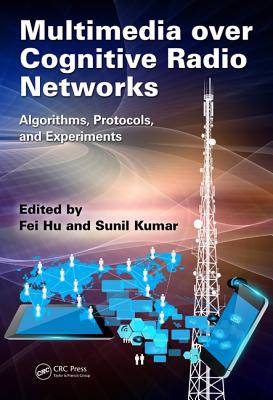
- Retrait gratuit dans votre magasin Club
- 7.000.000 titres dans notre catalogue
- Payer en toute sécurité
- Toujours un magasin près de chez vous
- Retrait gratuit dans votre magasin Club
- 7.000.000 titres dans notre catalogue
- Payer en toute sécurité
- Toujours un magasin près de chez vous
Multimedia Over Cognitive Radio Networks
Algorithms, Protocols, and Experiments
Fei Hu, Sunil KumarDescription
With nearly 7 billion mobile phone subscriptions worldwide, mobility and computing have become pervasive in our society and business. Moreover, new mobile multimedia communication services are challenging telecommunication operators. To support the significant increase in multimedia traffic--especially video--over wireless networks, new technological infrastructure must be created. Cognitive Radio Networks (CRNs) are widely regarded as one of the most promising technologies for future wireless communications. This book explains how to efficiently deliver video, audio, and other data over CRNs.
Covering advanced algorithms, protocols, and hardware-/software-based experiments, this book describes how to encode video in a prioritized way to send to dynamic radio links. It discusses different FEC codes for video reliability and explains how different machine learning algorithms can be used for video quality control. It also explains how to use readily available software tools to build a CRN simulation model.
This book explains both theoretical and experimental designs. It describes how universal software radio peripheral (USRP) boards can be used for real-time, high-resolution video transmission. It also discusses how a USRP board can sense the spectrum dynamics and how it can be controlled by GNU Radio software. A separate chapter discusses how the network simulator ns-2 can be used to build a simulated CRN platform.
Spécifications
Parties prenantes
- Auteur(s) :
- Editeur:
Contenu
- Nombre de pages :
- 492
- Langue:
- Anglais
Caractéristiques
- EAN:
- 9781482214857
- Date de parution :
- 03-12-14
- Format:
- Livre relié
- Format numérique:
- Genaaid
- Dimensions :
- 178 mm x 254 mm
- Poids :
- 1038 g







